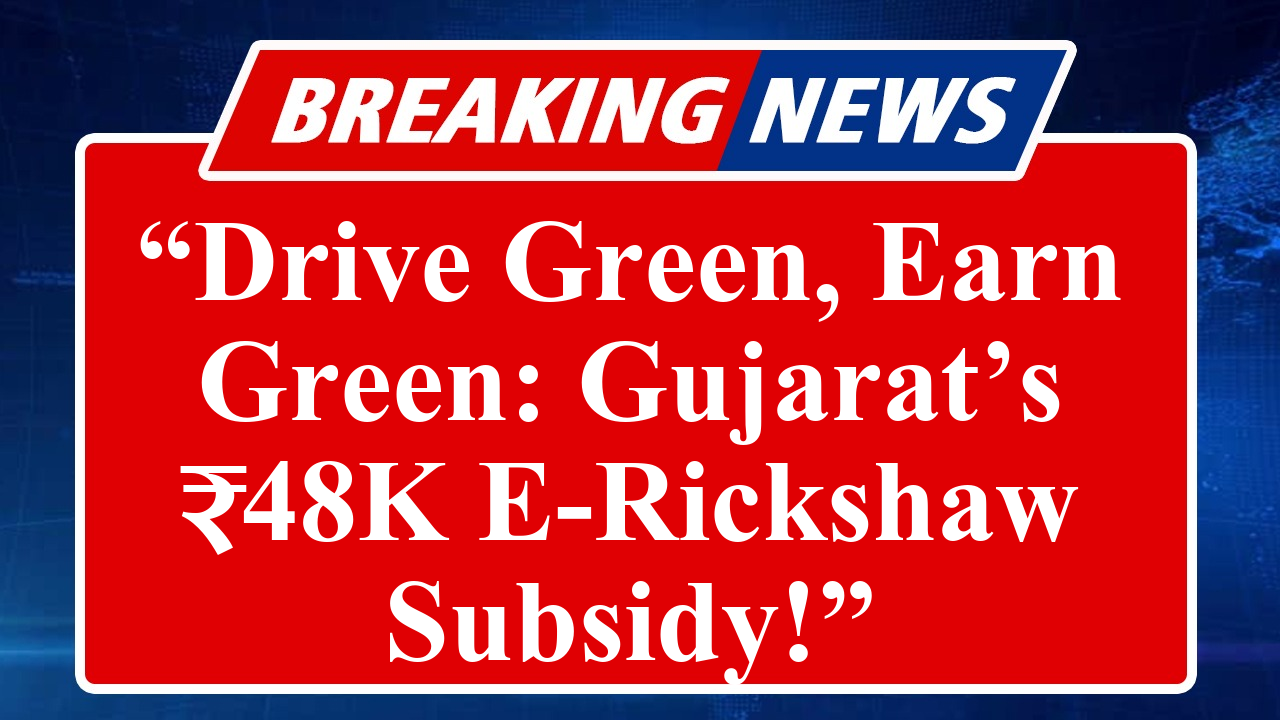Gujarat’s government has launched an e-rickshaw subsidy scheme targeting urban poor, offering up to ₹48,000 to promote green transport. Aimed at reducing pollution and supporting livelihoods, the initiative includes exemptions on registration and road taxes. The scheme aligns with Gujarat’s goal of deploying 2 lakh EVs by 2025, fostering sustainable urban mobility and economic empowerment.
Gujarat’s E-Rickshaw Subsidy Scheme: A Boost for Urban Poor
On June 24, 2025, the Gujarat government unveiled a transformative e-rickshaw subsidy scheme under its “Go-Green Three Wheelers Scheme,” specifically designed to uplift the urban poor and promote eco-friendly transportation. Administered by the Gujarat Building and Other Construction Worker’s Welfare Board (GBOCWWB), the initiative provides a one-time subsidy of up to ₹48,000 or 50% of the ex-showroom price, whichever is less, for registered construction workers who have become disabled due to workplace accidents. This financial aid also covers exemptions on registration fees and road taxes for first-time purchases of battery-operated tricycles powered by lithium-ion batteries.
The scheme is part of Gujarat’s broader Electric Vehicle (EV) Policy, which aims to deploy 2 lakh electric vehicles by the end of 2025, including 70,000 e-rickshaws. By focusing on the urban poor, particularly those in unorganized sectors, the state seeks to provide sustainable livelihood opportunities while curbing vehicular pollution. Eligible beneficiaries must be registered with the GBOCWWB, hold a tricycle license, and purchase an e-rickshaw in their name. The subsidy is disbursed directly to dealers post-verification, ensuring transparency and accessibility.
Gujarat’s EV adoption strategy has positioned it as a leader in green mobility. The state has reduced EV taxes from 6% to 1% until March 2026, making e-rickshaws more affordable. Additionally, the government is investing in charging infrastructure, offering ₹5 lakh subsidies for setting up stations, with 528 stations planned across the state. This initiative complements earlier schemes, such as the Gujarat Two-Wheeler Scheme, which provided ₹12,000 subsidies for students to purchase e-scooters.
Data from the Gujarat Energy Development Agency (GEDA) indicates that e-rickshaws, with their low operational costs and zero emissions, can save up to ₹5 crore in fuel expenses annually while reducing carbon emissions by approximately 6 lakh tonnes. The scheme also aligns with national efforts under the FAME-II program, ensuring that only vehicles meeting efficiency and performance criteria qualify for subsidies. For urban poor communities, this translates into accessible, eco-friendly transport options that enhance economic mobility.
The application process is streamlined through the GBOCWWB’s district offices, where applicants submit necessary documents, including Aadhaar cards, disability certificates, and purchase receipts. The state has also partnered with organizations like IIM Ahmedabad to promote renewable energy and clean mobility solutions, reinforcing Gujarat’s commitment to sustainability. With 30% of the state’s 35,500 MW electricity capacity derived from renewable sources, Gujarat is well-positioned to support its EV ecosystem.
Disclaimer: This article is based on information sourced from government announcements, Gujarat Building and Other Construction Worker’s Welfare Board (GBOCWWB), Gujarat Energy Development Agency (GEDA), and related reports available on the web as of July 6, 2025. Readers are advised to verify details through official channels for the latest updates.

